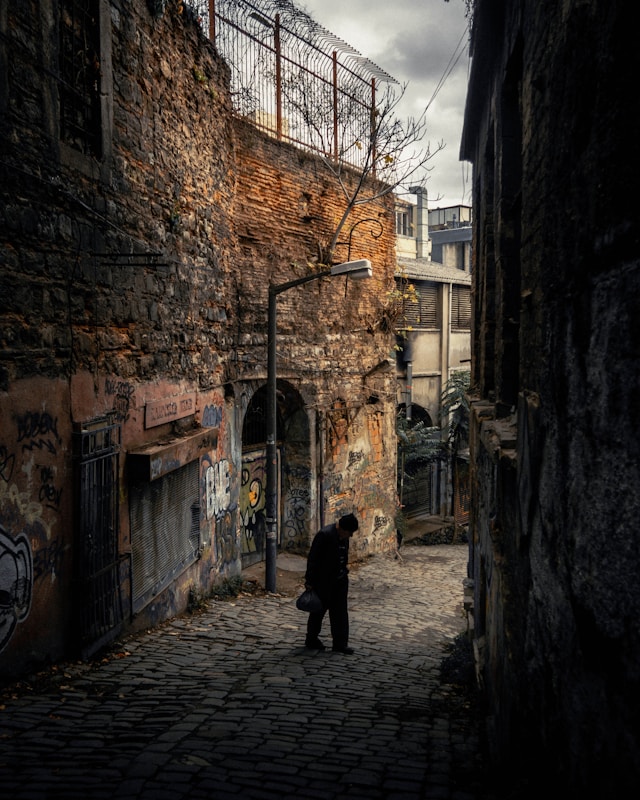"Our society must make it right and possible for old people not to fear the young or be deserted by them,

Image by https://unsplash.com/@galleryofmyeye
As I reflect on Pearl S.
Buck’s words, "Our society must make it right and possible for old people
not to fear the young or be deserted by them," I can’t help but feel the
deep truth and urgency behind her statement. To me, how we treat the elderly is
not just a reflection of how compassionate or organized a society is—it's a
test of our humanity. When the elderly are neglected, forgotten, or made to
feel like they no longer matter, it's not just their lives that are diminished;
it's the entire fabric of society that begins to fray.
Growing up in a culture that often celebrates youth and ambition, I have noticed how easy it is for the elderly to fade into the background, especially in modern, fast-paced societies where individualism reigns. But in my heart, I know there’s something deeply wrong with this. It is a sign of brokenness when the wisdom, experiences, and stories of older generations are ignored. Their lives matter. They are not relics of the past, but the very foundation on which the present stands. When we allow them to slip into loneliness, we lose more than we might realize—we lose connection, purpose, and a part of our shared humanity.
This brokenness is not something we see in every culture, however. I’ve always been struck by the contrast with more communal societies, like the Gemeinschaft communities where bonds are personal, and the elderly are woven into the very heart of the social fabric. There, the older generation isn’t treated as a burden but as a living library of experience, contributing to the community’s identity. It's a reminder that we thrive best when we hold tightly to one another, valuing every person for who they are, not just what they can do.
In these societies, I’ve noticed that the elderly live longer, not only because they have physical care, but because they are emotionally and spiritually nurtured. They know they are loved. They know they are needed. That sense of purpose sustains life in a way that no amount of material provision ever could. When people are made to feel valued, they flourish. They have a reason to keep going because their existence still matters in the eyes of others.
A culture that truly respects its elderly allows them to continue being active participants in life, sharing their wisdom and knowledge with younger generations. This is something I particularly admire in Chinese culture, where respecting one’s elders is ingrained in the social fabric. The concept of filial piety—deeply rooted in Confucian ideals—reminds me that it’s not just about caring for older relatives out of obligation but recognizing the incredible value they bring to the table. The elderly in these societies remain central figures, revered for their wisdom and insights. It’s a world away from the loneliness and invisibility I often see among the elderly in the West.
It is heart-breaking to witness the opposite—a society that treats its elders as though they are no longer needed, as though their worth is tied solely to their productivity. When the elderly fear the young, or worse, feel abandoned by them, I can’t help but feel that society has lost something essential. It has lost its soul. For me, it’s not just an issue of morality; it’s an issue of identity. Who are we, really, if we cannot care for those who raised us? If we leave them to languish in isolation, we are severing our connection to our past, to our roots, and ultimately to ourselves.
I believe that a society which fails to honour and include its elderly is a society that is fractured at its core. The brokenness doesn’t just show up in the lives of the elderly; it seeps into every corner of our world. It’s a sign that we’ve lost touch with the things that matter most—community, continuity, and love. I’ve seen first-hand how older people light up when they feel included, when their lives are infused with meaning and purpose. In these moments, they are not just surviving—they are truly living.
And isn’t that what we all want? To feel like we matter, that our lives have purpose, and that we are loved, no matter our age or ability.
For me, the way forward is clear. We need to heal this brokenness by restoring our relationships with the elderly, by making them feel valued and loved again. If we don’t, we risk creating a society where not only the elderly, but each of us, feels more alone. We lose the chance to learn from those who have lived through life’s greatest challenges and triumphs. We lose the chance to grow as individuals and as a community.
Caring for the elderly is
more than just meeting their physical needs; it’s fulfilling a God-given duty
that restores a vital part of our own humanity. When we care for those who once
nurtured us, we uphold a sacred cycle of love and purpose—one that, by God's
grace, may one day return to us in our own old age.